You may feel like others are judging you – but try not to judge yourself.
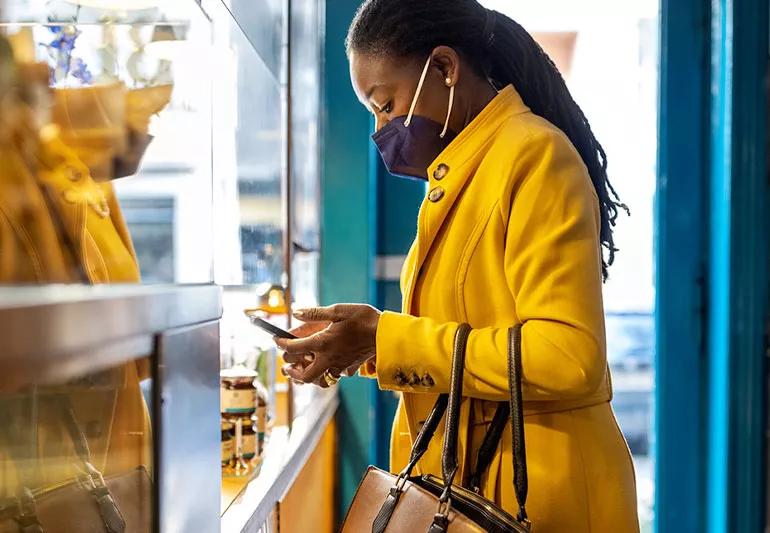
You’d gotten so used to wearing a mask — to the grocery store, at the gas station, maybe even while enjoying the great outdoors. At some point, it became less of a nuisance and more of a security blanket.
Advertisement
Cleveland Clinic is a non-profit academic medical center. Advertising on our site helps support our mission. We do not endorse non-Cleveland Clinic products or services. Policy
Now, though, many places no longer require masks. And if you’re one of the many people who’s still most comfortable covered up, you might be nervous about the judgments of others.
“You’re entitled to make choices about your own body,” says psychologist Dawn Potter, PsyD. But because it can feel uncomfortable to be the only masked face in the room, she offers tips for easing your anxiety, responding to nosy inquiries and seeking help if you need it.
As the saying goes, “Old habits die hard.” So even if you never wanted to mask up in the first place, you may now feel most comfortable wearing one, even in small gatherings with other fully vaccinated people.
“When people get into a habit of doing something, it can be hard to break the habit,” Dr. Potter says. “That even applies to things they didn’t initially want to do, like masking.”
If you live someplace where masks aren’t required but you want to continue masking, you may feel like the odd one out. But Dr. Potter says it’s natural to feel awkward about acting differently than other people in social settings.
“Humans are a social species, so we have a natural urge to conform,” she explains. “Doing something visibly different from everyone else — like wearing a mask when no one else is — kind of feels like showing up to a fancy wedding in jeans and a T-shirt. It just doesn’t feel right.”
Advertisement
Even if you’re comfortable without a mask, try to have empathy for the fact that other people’s lives are different from your own. We all live with varying circumstances, health issues and levels of risk tolerance.
There are plenty of reasons people might wish to keep masking up.
And frankly, after more than a year of being told that wearing a mask was a vital health and safety measure, it may simply feel too uncomfortable for you to go without, even in situations deemed safe.
“Masking gave us a sense of security and safety, and we grew so used to them that it may just feel bizarre now to be in a public place without a mask,” Dr. Potter says. “It’s natural to want to avoid discomfort, so many people — even and maybe especially those who believe in the efficacy of vaccines — may just feel more secure in continuing to mask up.”
If you live someplace where most other people aren’t wearing a mask, you may feel like everyone in the room is looking at you — and judging you. But try to remind yourself that noticing is not necessarily the same as criticizing.
“People do take note of things that stand out,” Dr. Potter says, “but that doesn’t mean that they’re all judging you.”
Think about it like wearing a brightly colored outfit or having a zit on your chin: While it may feel like everyone is staring at you, the reality is that most people will simply make a mental note and move on.
“Most people don’t spend a lot of time thinking about what complete strangers are doing,” Dr. Potter says. “If you feel judged by other people, remember that, for the most part, you’re the only one experiencing that discomfort.”
Advertisement
The good news? It’s likely no one will say anything at all. “A lot of times we have this inner monologue of things going way worse than they than they actually turn out,” Dr. Potter says.
But if you’re worried about what people might say, come up with some responses to have on hand. Dr. Potter suggests responses to keep it simple:
And remember: You don’t owe anyone your health history or an explanation for your choice to keep wearing a mask.
Doctors and scientists recommend that we continue to social distance and keep wearing masks in groups and while indoors. But if you’re still experiencing a lot of mask-related anxiety — and continuing to wear a mask during activities largely deemed safe, like talking a walk outdoors — it might be the right time to try to take baby steps toward loosening your personal restrictions.
“Experiment with or ease yourself into taking it off in places where there aren’t many people,” Dr. Potter suggests. Just be sure to bring a mask with you for situations that warrant it.
Advertisement
“Keep it in your pocket,” Dr. Potter says, “You can practice taking it off if you feel safe and are socially distanced. But if there are people around, just put it back on.”
While it’s normal to expect some nervousness and anxiety as guidelines continue to change, Dr. Potter says to be on the lookout for hints of mental and emotional distress related to masking. Signs that you’re having trouble include:
“It’s normal to feel some nervousness,” Dr. Potter says, “but if that nervousness doesn’t dissipate, it may be time to seek help for an anxiety disorder.” A mental health professional can work with you on your discomfort and help prepare you to safely reclaim some of your pre-pandemic life.
And finally, if you start to feel frustrated by your ongoing discomfort, do your best to show yourself compassion and patience, Dr. Potter says. “Change is hard enough without putting too much pressure on yourself.”
Advertisement
Learn more about our editorial process.
Advertisement
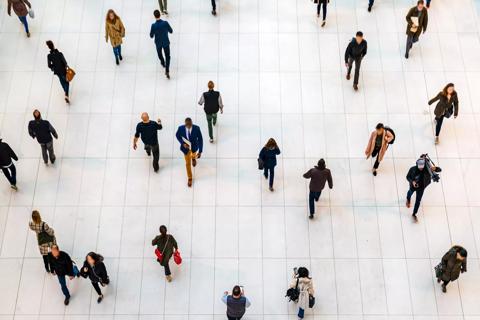
The short answer: It’s complicated, but the basic care precautions still prevail, like washing your hands and isolating if you’re sick
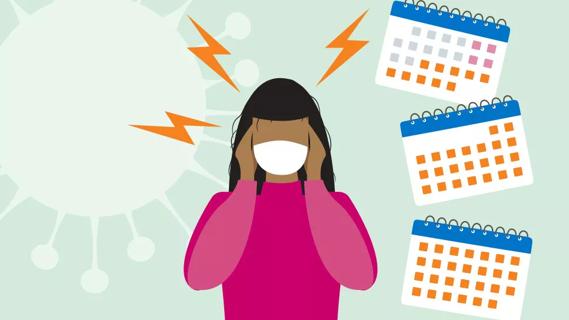
They can feel like a typical headache or a migraine headache, but the pain can last for weeks to months

Any large social gathering — from a family birthday party to an indoor music concert — has the potential to spread serious infection

It’s important to connect with a healthcare provider, get quality sleep and balance your activities with your energy levels

Just like the flu, COVID-19 will continue to evolve every year
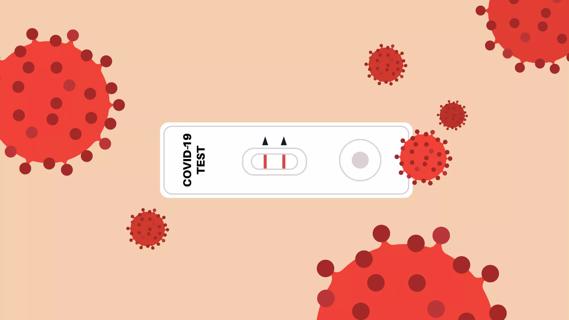
The duration varies, but symptoms can linger for a few days up to a couple weeks or more

Vaccination is best for prevention, but if you get sick with COVID-19, treatments are available
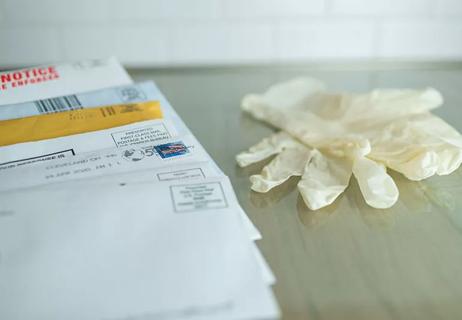
The virus lives best in humans, but it can last on hard surfaces, like doorknobs and railings

Type 2 diabetes isn’t inevitable with these dietary changes

Applying a hot or cold compress can help with pain